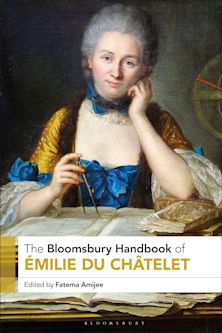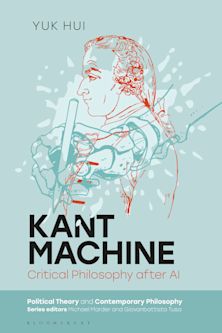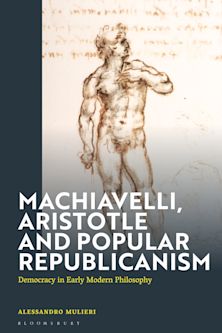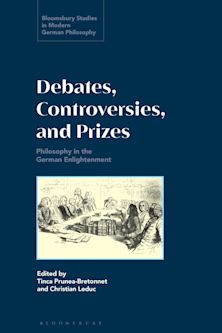- Home
- ACADEMIC
- Philosophy
- Modern Philosophy
- Form and Matter in Early German Idealism
Form and Matter in Early German Idealism
The Development of Post-Kantian Philosophy in Reinhold, Maimon and Fichte
Form and Matter in Early German Idealism
The Development of Post-Kantian Philosophy in Reinhold, Maimon and Fichte
You must sign in to add this item to your wishlist. Please sign in or create an account
Description
A pioneering book that sheds crucial light on the distinctions between Kant's philosophical project and German Idealism as a whole, resolving problems that are as relevant to scholars today as they were to Kant's immediate successors.
This ground-breaking study is the first detailed exploration of 'hylomorphism', or the division of all mental faculties and acts into form and matter. Identifying hylomorphism as the fundamental unifying dynamic in post-Kantian philosophy, David Sommer explores how Kant's idealist successors in the early 1790s-specifically Reinhold, Maimon and Fichte- mapped this dualism in the realm of cognition onto the physical world.
Proceeding through close analyses of primary texts, Sommer addresses an important gap in the existing scholarship while opening up new avenues of research into the works of Kant and his successors. He illuminates key yet understudied philosophical concepts within their historical contexts, notably providing an in-depth examination of the complex and innovative early works of Maimon and Fichte.
This is an essential contribution to our understanding of the origins of German idealism and Romanticism in general.
Table of Contents
Introduction
1. Form and Matter in Kant's theoretical philosophy
1.1. Form and Matter prior to transcendental idealism?
1.2. Form and Matter and the Faculties?
1.3. Form and Matter of the Understanding
2. Form and Matter in Reinhold's Elementarphilosophie
2.1. Form and Matter in the first Elementarphilosophie
2.2. Form and matter in the revised Elementarphilosophie of 1790
2.3. Aenesidemus: Schulze's attack on the Elementarphilosophie
3. Form and matter?in Maimon's Versuch?
3.1. Introduction?
3.2. Form and matter?and the universal antinomy of thought?
3.3. Differentials
4. Form and Matter in Fichte's early Wissenschaftslehre
4.1. Introduction
4.2. Eigne Meditationen Über die Elementarphilosophie
4.3. On the Concept of the Wissenschaftslehre
4.4. Grundlage der gesammten Wissenschaftslehre
Concluding remarks
Bibliography
Product details

| Published | 28 May 2026 |
|---|---|
| Format | Ebook (PDF) |
| Edition | 1st |
| Extent | 272 |
| ISBN | 9781350559608 |
| Imprint | Bloomsbury Academic |
| Illustrations | 4 bw illus |
| Series | Bloomsbury Studies in Modern German Philosophy |
| Publisher | Bloomsbury Publishing |



































